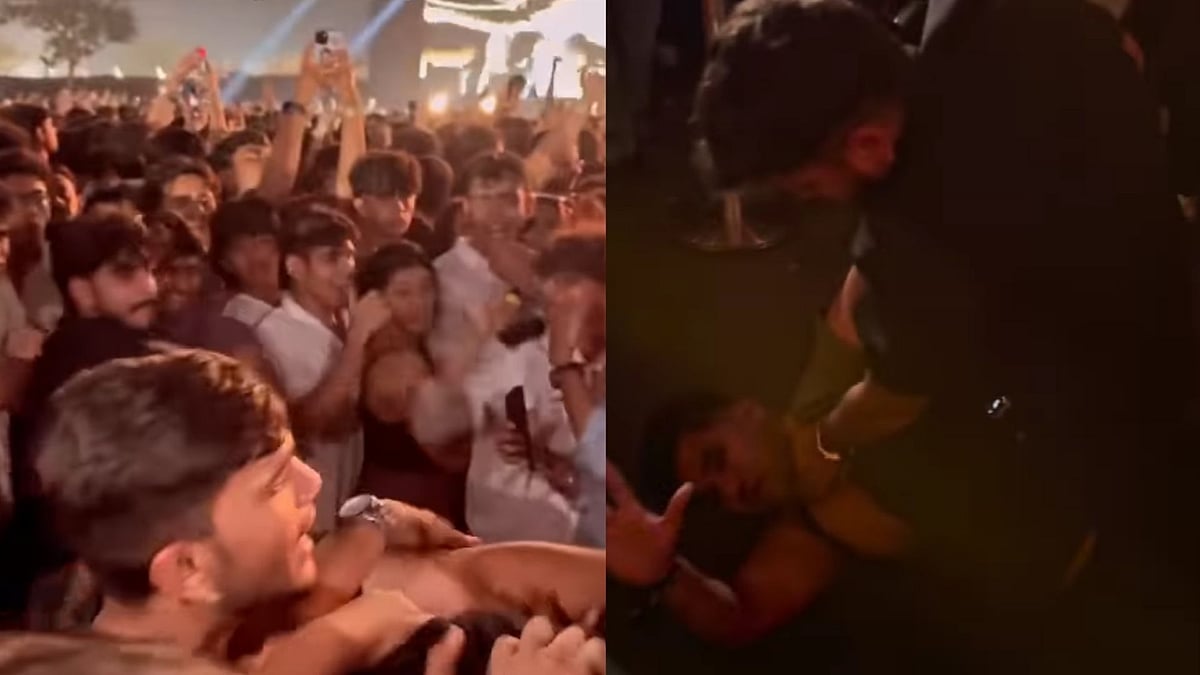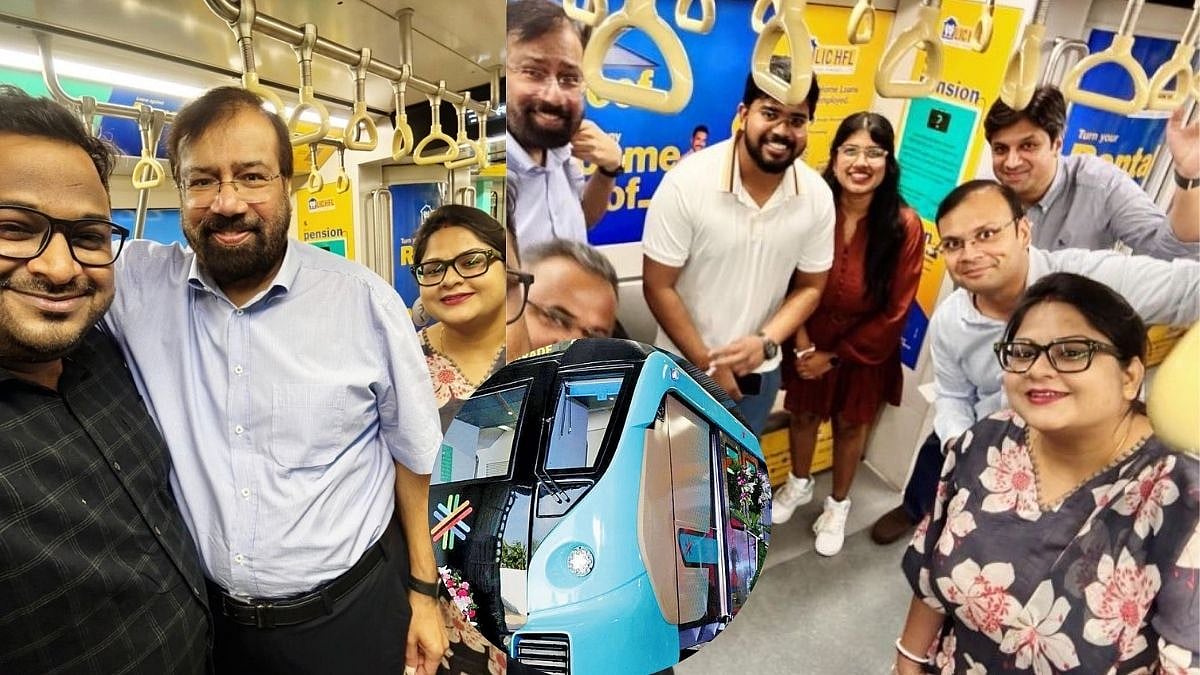Actor Apara Mehta doesn't need any introduction. The actor who became first the most hated and later most loved mother-in-law of India with superhit TV show Kyunki Saas Bhi Kabhi Bahu Thi has returned on TV with the most popular show Anupamaa. The actor has spent over four decades in the entertainment industry. From theatre and television and films to now OTT, Apara slayed every role that was offered to her. In fact, the memories of each of her roles are still fresh as she gets nostalgic while talking about her days on the sets of her most successful TV shows.
Apart from her television presence, the Devdas actor is known for her Gujarati plays. The actor is back with her latest play 'Parner Mast to Life Jabardast'. We caught up with Apara post the rehearsal of the play to talk more about her illustrious journey as an actor, embracing her roots of Gujarati theatre, OTT and the new wave of content, and how television fame precludes her from getting good roles on OTT.
Excerpts:
It has been over three decades as an actor for you. How has been the journey so far?
My experience with theatre began in 1981. Since my mother performed in Gujarati theatre, it was assumed that I would as well, which is how I appeared on stage even though it wasn't my plan for my life. I learned Kathak from Asha Joglekar and classical music from Gulam Mustafa Khan. I have never looked back since I started because every play I have been in has been a smashing success. We once performed 36 gigs each month in Mumbai. I've had a very long, fruitful trip up to this point.
Do tell us about your latest play, 'Partner Mast toh Life Jabardast'?
It is based on a Marathi play 'Aamne Samne'. Post COVID, we were looking for a good script, so we looked at some Marathi plays and came across this play. Initially, we were scared to take up this play as the Marathi play cast was phenomenal, and putting up a show similar to that is difficult. We also thought it might be risky for the Gujarati audience, but we still went ahead with it, thinking the audience has grown as well. The play is a lighthearted take on the complexities of marriage and a modern day man-woman relationship. It also explores the generation gap between a traditional marriage, and two couples living next door to each other.
As an actor, you have explored all the performing mediums — theatre, TV, films, and OTT — which one do you enjoy the most?
It is a very difficult question to answer. Though theatre should be my answer, as it's my training ground, it would be wrong if I didn't take TV into account. TV has also given me an instant response from people. I have done some big TV shows. All the fame that I got through TV, I have used for Gujarati theatre. Since the time I starred in 'Ek Mahal Sapno ka' and 'Kyunki Saas Bhi Kabhi Bahu Thi', I continued doing Gujarati plays and have never given up on Gujarati theatre. No one has hung on to Gujarati theatre the way I have. I have shuttled between Mumbai and Ahmedabad for 20 days a month since 2000 for TV shoots and theatre performances. Only passion cannot help you go ahead for such a long time, it is also a commitment to both that takes you so far. After the lockdown opened, I started doing cameos on TV shows, and then 'Decouple' happened, and all the OTT projects that I am working on have just fallen into my lap.
Kyunki... has returned on TV as well as on OTT. Did you get to watch it to rekindle some old memories?
The first episode of 'Kyunki...' was released on the same day as Kaun Banega Crorepati. We had no idea that we would create a gem and how it would change the history of Indian television. I remember being mobbed in Surat when I went for a play, and I had to call for police protection. I came back to the set and told Smriti (Irani), "Hey listen, we are very big outside. And I was mobbed by the crowd." We had no time for anything else but shooting episodes. I was the only one going out to perform my plays in the evening. That is when they introduced the 7am-7pm shift. When Mihir's death scene happened, I was shooting for 17 days and nights. Nights I was shooting for Devdas, and days I was shooting 'Kyunki'. I had 'alta' in my hands that didn't go out by washing, so I had shot for the entire Mihir's death sequence without using my hands. I saw 'Kyuki' during the lockdown and realised that we had done such a wonderful job and people still remember all of us by our character names even after so many years, that's the mark we made on people's hearts.
'Kyunki...' was really big, and people started seeing those characters as their own. Were you typecast after the show was over?
After I wrapped up the show, I received a lot of roles, similar to the show. But, when Balika Vadhu happened, everyone suddenly started doing rural shows, and I decided not to take up such roles. I finally got an offer to act in the TV comedy daily soap 'Sajan Re Jhoot Mat Bolo' which I couldn't say no to, after I finished my play called 'U-turn.' God has been kind to me in that I never got typecast; I did all sorts of roles, thanks to my theatre training. I also got a chance to do reality shows like Comedy Circus, where Shailesh Lodha was my partner and we scored full marks in the episodes until our elimination.
You really have hung on to theatre for long. What is your take on the digitisation of theatre?
Theatre went through many phases and has still survived. The only time it has suffered the most is during and post-COVID-19 and we are doing everything to revive it. Now, all of us can be at home and get things done; from medicines to food to entertainment, everything is just a click away, and we all prefer taking the easy route. And when it comes to entertainment, so many things have come your way that you are spoilt for choice, and everyone has a phone to choose content to watch. This is what COVID-19 has done to us mentally, we all want to sit at home in our comfort zone. Still, I really do not see teleplays or digitisation as a threat, as theatre will continue to survive.
There's a new bunch of talent that has been introduced to the audience through OTT. Does that pose any challenge to popular actors?
I have seen the evolution of TV over the years. After COVID-19, OTT became a huge thing, and TV took a backseat. I did a show and reached out to a new audience that hadn't seen me on television. It's a new change, and I completely rely on my directors and learning new things as an actor. My daughter told me that I have to stay away from television shows to work more on OTT. It's a new beginning, but unfortunately, most OTT platforms do not want to cast actors who are very popular on television. I also want to address the fact that most producers prefer casting fresh faces, over television actors on OTT. This is extremely unfortunate, as they do not understand that we come with so much experience.





